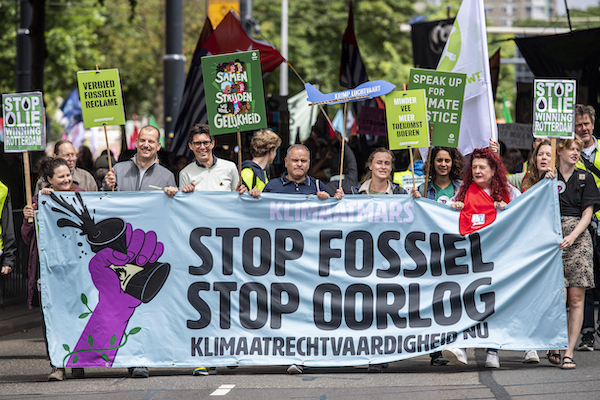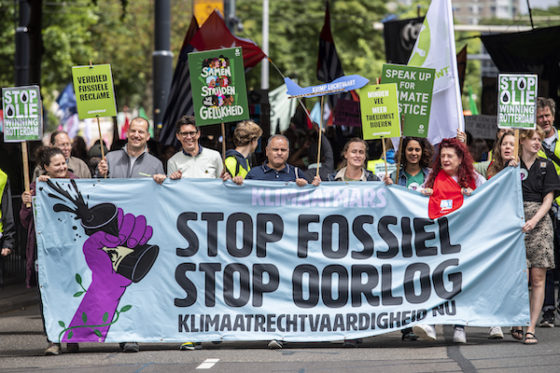EU to crack down on ‘greenwashing’ and promote repairs


This week the European Commission decided to crack down on misleading definitions and proposed new rules that should help consumers better understand how ‘sustainable’ are the products and services they buy.
A ‘recycled plastic’ t-shirt, an ‘ocean friendly’ sunscreen or a ‘carbon compensated’ travel ticket can be appealing for people who want to make a difference for the planet. But they are all examples of greenwashing as they give consumers vague, and often misleading, information.
Just last year the Netherlands Authority for Consumers and Markets (ACM) reprimanded, Decathlon and H&M for using terms such as ‘ecodesign’ and ‘conscious’ to describe their products without specifying what this meant.
The two companies then agreed to better inform consumers and donate €400,000 and €500,000 euros, respectively, to compensate to sustainable causes for their unsubstantiated claims.
Environmental groups also launched a lawsuit against KLM, arguing that adverts promoting the airline’s carbon offsetting scheme were misleading.
Similar practices are widespread in Europe. A study by the European Commission found in 2020 that more than half (53%) of environmental claims used to promote products or services in the EU were ‘vague, misleading or unfounded’ and 40% completely unsubstantiated.
Proposals
Under the commission proposal, green claims will have to be supported by scientific evidence and checked against minimum criteria by an independent body. This will issue a certificate of compliance that will be valid across the European Union.
National authorities will have to set up the verification processes, publicly disclose the results and fine companies that mislead their customers. Consumer organisations will also be able to bring legal action against them.
‘We are bombarded with information. There are 230 different eco labels on the EU market…’ said environment commissioner Virginijus Sinkevicius, presenting the proposal.
‘We want to help consumers become more confident about their choices and ensure that those companies that make genuine efforts to reduce their impacts on nature, resource use, climate emissions or pollution are rewarded.’
A spokesman for the ACM, which issued guidelines on green claims in 2020, told Dutch News: ‘We are glad about the proposal, because it provides more rules for environmental claims… For consumers it is important to know if they can trust a claim or not.’
Carbon neutral
Despite pressure from consumer and environmental organisations, however, the European Commission did not ban the label ‘carbon neutral’. It also allowed the use of offsets in green claims. This means that instead of reducing CO2 emissions, companies buy carbon credits for environmental projects elsewhere as compensation.
Under new rules, businesses would have to specify what part of their claims relies on these credits. But consumer groups say this is also a greenwashing tactic that leads to confusion for consumers.
A survey by the ACM has shown that most respondents did not understand the term ‘carbon neutral’ and half of them did not know, or saw little difference, between carbon offsetting and carbon reduction when purchasing a plane ticket.
‘Right to repair’
The commission is also proposing new measures that would require companies to repair rather than replace products within two years of purchase (if it is cheaper to do so).
Consumers would also have a right to request that manufacturers repair products technically repairable under EU law, including TVs, washing machines, fridges, dishwashers and mobile phones, for between five and 10 years.
It will take time before these measures take effect, as the European parliament and council (EU governments) still have to approve them.
A spokesman for consumer organisation Consumentenbond told Dutch News the proposal is mainly about ‘improving the chances of repair after the legal warranty period’. However, for products with an expected lifespan of over two years, ‘the legal warranty should be extended considerably’.
For phones and IT devices, software updates should be guaranteed for the entire life of the product, Consumentenbond added.
Thank you for donating to DutchNews.nl.
We could not provide the Dutch News service, and keep it free of charge, without the generous support of our readers. Your donations allow us to report on issues you tell us matter, and provide you with a summary of the most important Dutch news each day.
Make a donation